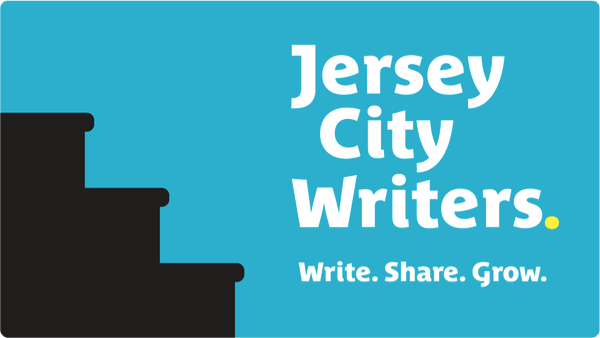I’ve been participating in Jersey City Writers’ Full Story workshops pretty much since I joined the group. As someone who works best with full-length novels, rather than short stories or excerpts, the book club-like format was perfect for me, both as the person getting critiqued and as a reader. As a writer, it’s super helpful to get multiple perspectives on a book, to see what’s working and what isn’t, and how all those words land.
It’s also helpful for getting that book written in the first place.
Back in 2016, I signed up for a Full Story workshop in mid-2017 even though I didn’t even have a new book written yet. But I signed up for a Full Story workshop, and knowing I had a deadline for that workshop helped drive me across the finish line. The thing about first drafts is they don’t have to be good. They just have to exist. It’s so easy as a writer to get caught up in little nuances and details that keep you from finishing the dang thing. With the Full Story deadline looming, I didn’t have time to worry about nitpicks. I just had to get the plot down on the page.
Another thing about writing: sometimes, time is the best editor. You need to be able to step back from your manuscript so that you can come back to it with fresh eyes. What’s nice about the Full Story is that a break period is built in. Between the time you turn in your manuscript and the time of your critique session, a whole month passes, giving your work-in-progress time to breathe.
With my novel, Stronger Than a Bronze Dragon, I made up a lot of it as I went along. I had a vague idea for the overall plot, but for the most part was just improvising my way forward. I had no idea if the story made sense to a reader, or if the characters were coming across as intended. During my Full Story session, it was really helpful to hear what various people thought.
Of course, there were plenty of disagreements among readers—you’re never going to please everyone. Somebody could say “I love this” and someone else could say “I hate it,” referring to the same scene. But when you know who your readers are, you can take that into account. If the person who hates a scene doesn’t usually read your genre, maybe take that with a grain of salt. As the author gets the opportunity to ask questions at the end, I had the chance to clarify some of those disagreements and consider which notes I wanted to take and which I could safely ignore.
After taking pages and pages of notes during my Full Story critique session, I once again set my manuscript aside for a while, just to give myself some space. Then organized my notes chronologically (by events in the book) and set about revising.
Another way the Full Story workshop helped was by showing me which parts of the story really excited the readers. I used that to inform my pitch when I decided to submit to publishers.
How I found my publisher is a bit unusual. There are a bunch of pitch events on Twitter these days, where writers tweet a pitch for their book using specific hashtags, and participating agents and editors scroll through the pitches and “favorite” the manuscripts they want to see. I was at work, procrastinating by scrolling through Twitter, when I realized it was the day of one such event, #PitMad.
Without really thinking much of it, I dashed off a quick pitch, figuring “might as well throw my hat in the ring.” To my surprise, several agents and two editors “favorited” it. I guess everyone was in the mood for a YA adventure set in a fantasy version of China about a warrior girl who teams up with a thief to fight the demon king and save her village. That’s pretty much what the pitch said.
I submitted the manuscript to said agents and editors and wound up signing with an agent who then sold it to a publisher.
The Full Story had a significant impact on shaping the manuscript into something a publisher would find appealing, and I made sure to thank my readers in the book’s acknowledgements. Thanks to the workshop’s feedback, I was able to make the story into the best version of what it could be, enough so that my agent didn’t even have any comments on it other than a handful of nitpicks. The editor at Page Street Publishing did have a few additional revisions, but it was mostly playing up parts that were already there.
I ended up doing the whole thing again, signing up for a workshop before I’d written a book and blitzing through the first draft to get it into the workshop in time. That book was in much rougher shape by the time I sent it in, and it was really helpful to hear from the readers what would make it more interesting. That manuscript is currently out on submission with editors. Once again, the agent loved it after I revised based on the Full Story’s feedback.
Reader feedback in the early stages of a manuscript’s life is vital to any writer, and as far as I know, the Full Story is the only workshop that lets authors submit entire manuscripts. Even college creative writing programs often only let you submit a few chapters at a time. For any Jersey Ctiy Writer who’s writing a novel, or even considering writing one, I highly recommend stopping in to check it out!

